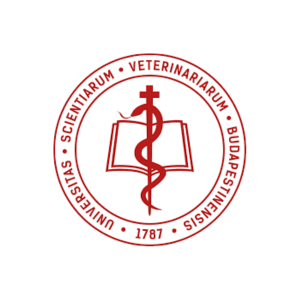University of Veterinary Medicine

The University of Veterinary Medicine Budapest, founded in 1787 as the third veterinary school in Europe, is the sole institution in Hungary for veterinary education. Its influential and pioneering professors have been foundational figures in veterinary medicine worldwide, as evidenced by their synthesis of scientific research and practical solutions to meet challenges and demands.
The current level of its scientific activities is exceptional, with its publication performance reaching unprecedented levels. Recognized among the best veterinary education institutions in Europe out of 98 accredited institutions, this acknowledgment was reaffirmed by the Hungarian Accreditation Committee’s (HAC) audit. In the fall of 2023, following a review of the university’s professional and educational activities, the European Association of Establishments for Veterinary Education (EAEVE) accredited the university for the fourth time, ensuring that the diplomas issued here are recognized in all European countries.
The international scientific significance and recognition of Hungarian veterinary education are evident at the University of Veterinary Medicine Budapest, which instructs in three languages (Hungarian, English, German). Alongside Hungarian students, 998 foreign students from 69 countries are pursuing doctoral studies in veterinary medicine.
Recent professional achievements are attributed not only to highly skilled staff but also to acquisitions of cutting-edge technology, such as MRI and CT machines at the Üllői Equine Clinic, which are rare worldwide. The university actively participates in both international and domestic grants, conducting research in critical areas such as infectious animal diseases, antimicrobial resistance, veterinary public health, and food chain security under the National Laboratory Project.
Since its inception, the university has been committed to animal health, disease prevention, animal welfare, and ensuring the production of sufficient, safe, and high-quality domestic food for people’s tables. To enhance the competitiveness of Hungarian agricultural and food economy, the university has doubled its intake of students, now enrolling 180 Hungarian-speaking students annually in the veterinary doctorate program. In addition to veterinary education, the University of Veterinary Medicine Budapest supports the sustainable One Health approach by training highly skilled biologists and research zoologists.

